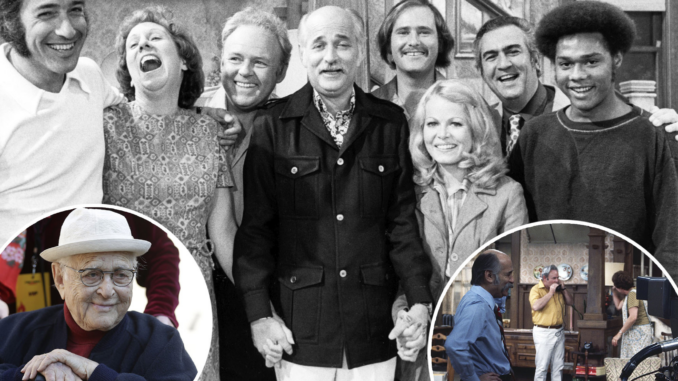
Norman Lear is a name synonymous with television innovation. As a producer and writer, he has profoundly influenced the landscape of American TV. From the groundbreaking satire of All in the Family to the heartfelt lessons of The Facts of Life, Lear’s work resonates even today. This article explores how he revolutionized television, tackled social issues, and paved the way for future generations of storytellers.
The Early Days of Norman Lear
A Background in Entertainment
Before becoming a television mogul, Lear honed his craft in various entertainment forms. Born on July 27, 1922, in New Haven, Connecticut, he began his career in radio and quickly transitioned to television. His experiences during World War II, where he served in the Army Air Corps, shaped his worldview and comedic sensibilities.
The Rise of Lear’s Career
Lear’s breakthrough came in the 1970s when he began creating shows that challenged societal norms. His unique perspective and willingness to tackle controversial topics set him apart from his contemporaries. With a keen eye for storytelling, he crafted narratives that resonated with a broad audience.
The Impact of All in the Family
A Game-Changer in Television
When All in the Family premiered in 1971, it quickly became a cultural phenomenon. The show centered around the Bunker family, particularly the outspoken and often bigoted patriarch, Archie Bunker, played by Carroll O’Connor. Lear’s bold choice to address issues like racism, gender inequality, and class struggle resonated deeply with viewers.
Breaking Taboos with Humor
Lear used humor as a tool to confront uncomfortable truths. By making audiences laugh at Archie’s outdated beliefs, he encouraged conversations about prejudice and intolerance. The show’s ability to blend comedy with serious themes changed the way television approached social issues.
Cultural Reflection and Impact
All in the Family didn’t just entertain; it reflected the societal tensions of the time. The show’s success demonstrated that audiences were ready for more complex narratives. It paved the way for future sitcoms to tackle similar themes, setting a standard for socially conscious storytelling.
Transitioning to The Facts of Life
Empowerment Through Storytelling
Following the success of All in the Family, Lear produced The Facts of Life, which premiered in 1979. This series focused on a group of girls at a boarding school, highlighting their friendships and personal growth. Unlike many shows of its time, The Facts of Life centered on female empowerment and the challenges young women face.
Addressing Real-Life Issues
Each episode tackled issues relevant to its audience, such as self-esteem, peer pressure, and family dynamics. By addressing these topics with sensitivity and humor, Lear created a show that resonated with young viewers, particularly girls navigating adolescence.
A Shift in Representation
Lear’s commitment to representation extended to The Facts of Life. The diverse cast showcased a range of backgrounds and experiences, promoting inclusivity and understanding. This focus on authentic representation laid the groundwork for future shows to embrace diversity.
Norman Lear’s Lasting Influence
Inspiring Future Generations
Norman Lear’s impact on television extends far beyond his own shows. His approach to storytelling has inspired countless writers, producers, and actors to push boundaries and explore new narratives. Many contemporary shows, such as Black-ish and One Day at a Time, draw inspiration from Lear’s pioneering spirit.
A Legacy of Social Responsibility
Lear’s work reminds us that television can be a powerful tool for social change. By addressing real-world issues and encouraging dialogue, he set a precedent for future creators. His commitment to making audiences think while they laugh has left an indelible mark on the industry.
The Continuing Relevance of Lear’s Work
Modern Adaptations and Reboots
Even today, Lear’s shows continue to resonate. Reboots and adaptations, like the recent One Day at a Time, have introduced his messages to new generations. These modern interpretations keep his legacy alive, proving that the themes he championed remain relevant.
Engaging Today’s Audiences
Lear’s ability to touch on timeless issues ensures that his work speaks to today’s audiences. The social dynamics he explored in the 1970s can still be seen in contemporary discussions about race, gender, and identity.
Conclusion: Celebrating Norman Lear’s Impact on Television
Norman Lear has undoubtedly revolutionized television, paving the way for shows that prioritize storytelling and social responsibility. His ability to tackle controversial issues with humor and grace has inspired generations of creators and continues to resonate with audiences today. As we celebrate his work, we recognize the profound impact that All in the Family, The Facts of Life, and his other creations have had on TV culture and society.
